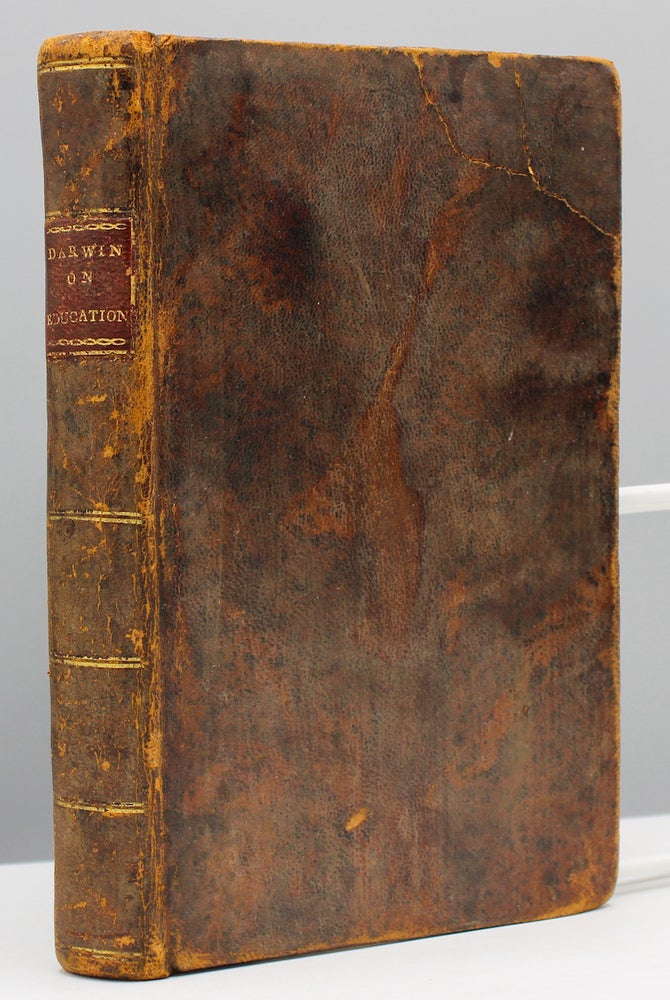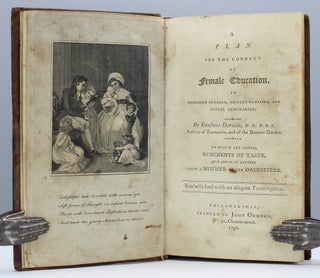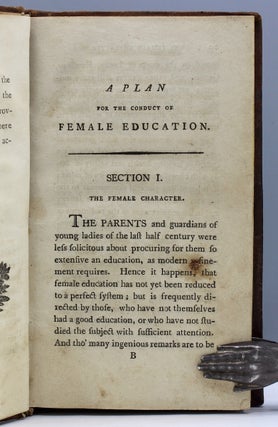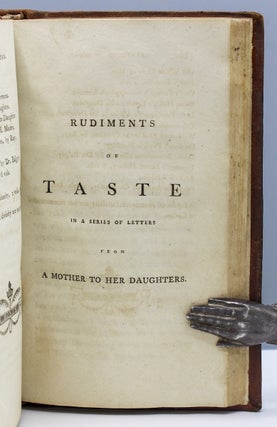A Plan for the Conduct of Female Education, in Boarding Schools, Private Families, and Public Seminaries...to which are added, the rudiments of taste, in a series of letters from a mother to her daughters.
Philadelphia: Printed by John Omrod, 1798. First American edition of this educational classic that shows the influence of Rousseau on the work of Erasmus Darwin (1731 – 1802). First published in London the previous year. Included in this edition is an American printing of Mrs. M. Peddle’s Rudiments of Taste, a popular conduct book was first published in London in 1789 and in the United States in 1790. Separate title-page for Mrs. M. Peddle’s The Rudiments of Taste. Some wear to binding and a couple cracks to sheep on upper board. Quite a fresh copy despite some foxing to first few leaves and some slight toning throughout. A very good, tight copy of a fragile book. Contemporary tree sheep with red morocco spine label. Gilt-ruled spine. Twelvemo. 4], 188 pp.; [2], [199]-308 pp. Pages 189-198 omitted in pagination, but the work is complete. Item #17365
Darwin wrote the present work after helping his daughters, Susan and Mary Parker, establish a boarding school for young women in 1794. Here, he draws on the theories of Rousseau, Locke, and Genlis to advocate for the education of women in schools in topics like philosophy, the natural sciences, history, art, manufacturing, and language. Darwin believed that women should be educated for the purpose of becoming better wives and companions to men, but promoted progressive notions that women’s education would take place in well-resourced schools (rather than in the home) and that women should be educated in the concepts of finance, industry, and manufacturing. In Peddle’s The Rudiments of Taste, “Classical influence blends with Christian…[Peddle] recommends reading ancient and modern history, travels, biography, science and good poetry, not novels, which leave their readers incapable of ‘relishing anything superior,’” (Blain, Grundy, and Clements, eds., The Feminist Companion to Literature in English, p. 841).
Evans, 33601.
Price: $1,250.00






